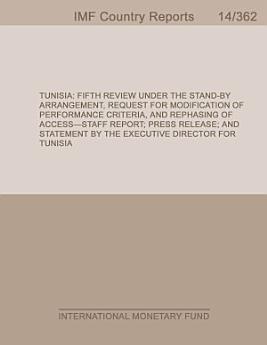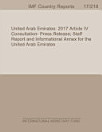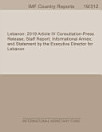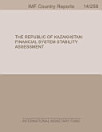Tunisia: Fifth Review Under the Stand-by Arrangement, Request for Modification of Performance Criteria, and Rephasing of Access–Staff Report; Press Release; and Statement by the Executive Director for Tunisia
International Monetary Fund. Middle East and Central Asia Dept.
Dec 2014 · International Monetary Fund
Ebook
85
Pages
reportRatings and reviews aren’t verified Learn More
About this ebook
EXECUTIVE SUMMARY Context. On June 7, 2013, the Executive Board approved a 24-month Stand-By Arrangement in an amount equivalent to 400 percent of quota (SDR 1.146 billion or about $1.75 billion). To date, SDR 716.25 million, equivalent to $1.1 billion, has been disbursed. Background. Tunisia is completing a successful political transition to democracy while navigating a challenging environment marked by high social and security tensions, slow growth in trading partners, and spillovers from regional conflicts. At the same time, large external and fiscal imbalances, high unemployment, and increased banking fragilities remain the main challenges. Program implementation has been mixed. All quantitative performance criteria have been met. However, progress on the structural reform agenda has been slow, with considerable delays in the recapitalization of public banks and the legislative agenda on the tax, investment and bank asset recovery fronts. Program strategy. The focus should continue to be on short-term macroeconomic stabilization and laying foundations for higher and more inclusive growth, including by moving forcefully on banking reforms. Prudent fiscal and monetary policy, along with improved budget composition and greater exchange rate flexibility, need to be directed to containing high imbalances and anchoring inflationary expectations. Recapitalizing public banks in line with good international practices is urgent in view of mounting risks to financial stability, and is also important in light of its impact on financial intermediation and growth. Progress on structural reforms is necessary to generate the conditions conducive to private sector–led and inclusive growth and protect the most vulnerable. Risks to program implementation are important. The main risks relate to regional and domestic security tensions, delays in forming a new government, shortfalls in official and market financing, or a further deterioration of the international economic environment. The implementation of program policies will continue to be tested by opposition from vested interests; however, support for the reform agenda among the authorities and a broad spectrum of political parties represents a key risk-mitigating measure. The completion of the fifth review will make SDR 71.625 million (about $110 million) available.
Rate this ebook
Tell us what you think.
Reading information
Smartphones and tablets
Install the Google Play Books app for Android and iPad/iPhone. It syncs automatically with your account and allows you to read online or offline wherever you are.
Laptops and computers
You can listen to audiobooks purchased on Google Play using your computer's web browser.
eReaders and other devices
To read on e-ink devices like Kobo eReaders, you'll need to download a file and transfer it to your device. Follow the detailed Help Center instructions to transfer the files to supported eReaders.








